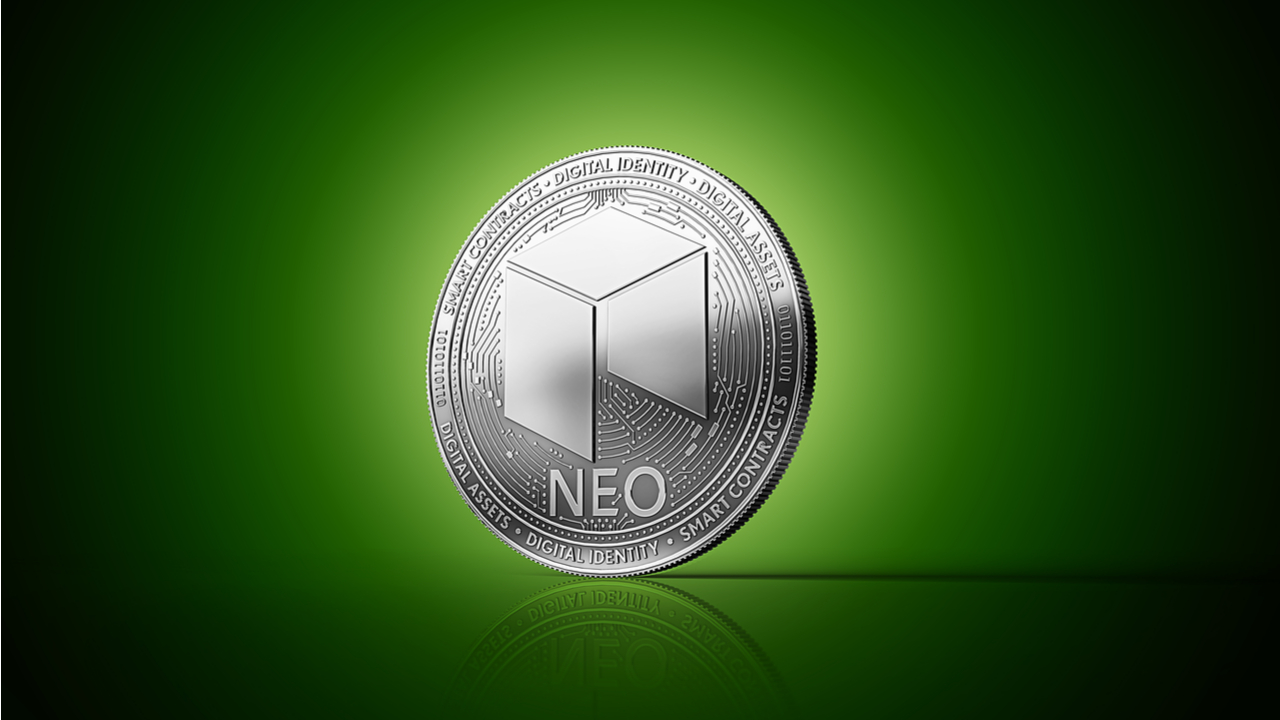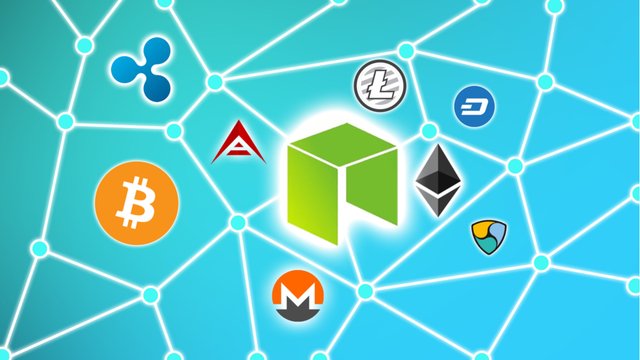The Blockchain Handbook - Chapter 6: NEO (NEO)
NEO is a cryptocurrency and blockchain platform out of China. It was started by Da Hongfei and Erik Zhang in 2014 as AntShares, and emerged as a "real-time open source on GitHub" in June of 2015. It was since rebranded as NEO in August of 2017 -- part of a play to bring the spotlight to China's up-and-coming cryptocurrency and blockchain technologies. Many consider it an upstart challenger to Ethereum's crypto throne, and, while it's still relatively new to the game, it's made some waves in the way it approaches smart contracts and the development of digital assets. Currently, NEO has a market cap of $7,689,825,000, with a value around $118.31, or 0.01275350 BTC.

Many of NEO's facets are still in development, but the general concept, that of a "Chinese Ethereum," is one that has many cryptocurrency fanatics intrigued. NEO has become the eighth most-valuable cryptocurrency by rank, with a 24-hour volume of around $172,408,000 and sharp increases that occurred near the beginning of 2018. At present, the circulating supply of NEO is 65,000,000 NEO, while the total supply is 100,000,000 NEO.
NEO: Competition, Pros and Cons
NEO is angling to fill a similar crypto-niche as Ethereum, which is to generalize blockchains that give developers tools for working in a new internet landscape. However, whereas Ethereum wants to create a more free and trustworthy Internet 3.0, NEO's goals seem more aligned with bringing a shift toward a so-called "Smart Economy." As stated in the NEO whitepaper:
"NEO is the use of blockchain technology and digital identity to digitize assets, the use of smart contracts for digital assets to be self-managed, to achieve 'smart economy' with a distributed network."
That Smart Economy aspect is perhaps the greatest difference between NEO and Ethereum. Although Ethereum and NEO include some similar features between their blockchains, NEO is building their platform for the specific purpose of the Smart Economy, and believes there are three elements that will bring this about: Digital Assets, Digital Identity and Smart Contracts.
In short, Digital Identity is a verifiable ID in digital form. The goal is the establish a trusted link between digital and physical entities, and, in the case of shenanigans on the platform, a means by which to track it back to the party who committed the offense. There's no anonymity, but it's necessary to establish a platform on which governments and other entities are digitizing assets. NEO's identity verification will combine, as they say, "the use of facial features, fingerprint, voice, SMS and other multi-factor authentication methods."
Digital Identity will be combined with the concept of Digital Assets, programmable assets that exist in the form of data. These go beyond mere currency and include tangible property -- clothing, food, a house, a car, collectibles and the like. These are linked in digital and physical form via the Digital Identity system, and come in two forms, Global Assets and Contract Assets. NEO breaks down the difference, again through their whitepaper:
- Global Assets can be recorded in the system space and can be identified by all smart contracts and clients.
- Contract Assets are recorded in the private storage area of the smart contract and require a compatible client to recognize them.
Then there's the NeoContract smart contract system, what they hail as the "biggest feature of the seamless integration of the existing developer ecosystem." As smart contracts are written in code, NEO seeks to make this accessible to as wide a swath of developers as possible. To achieve that, they allow for developers to use mainstream programming languages -- C#, Java, etc. This mitigates the need for adopters to learn new languages for smart contract development, allowing "millions of developers around the world to quickly carry out the development of smart contracts."
There's more complexity to the system, of course, and several other ways that NEO differs from its chief competitor, Ethereum. For a deeper understanding, reading the two Hackernoon articles, NEO Versus Ethereum and What is Neo And What Is Gas is highly recommended. They detail, among other things, some drawbacks of NEO's platform, the most notable of which is the modified proof-of-stake protocol:
"The disadvantage with this system is a lack of decentralization. In its purest sense, instead of thousands of validators being scattered all across the world, governance is concentrated in a few dozen validators."
Still, NEO stands poised to become a revolutionary blockchain platform, and the concept of the Smart Economy is one that many see as a coming inevitability.

The Uses of NEO
Beyond its use as a cryptocurrency, NEO's utility will come from the Smart Economy, or the ability to digitize assets then manage these digital assets through smart contracts. If all goes as planned, users will benefit from improved trust thanks to the Digital Identity system, as well as a platform that is ready for government and industry adoption. In addition, NEO will support DApps, similar to Ethereum, allowing for the implementation of smart funds, decentralized exchanges and other features.
The Future for NEO
NEO has been on the upswing recently, gaining more than 300 percent since August. The ultimate goal of NEO is the implementation of their Smart Economy, but, for now, NEO users can expect new features like cross-chain interoperability, file storage via distributed hash table technology and a lattice-based cryptographic mechanism to come to the platform in the near future.
Sources:
- https://coinmarketcap.com/currencies/neo/
- https://coincentral.com/what-is-neo-cryptocurrency/
- https://hackernoon.com/what-is-neo-and-what-is-gas-5b9828a1aa65
- https://hackernoon.com/neo-versus-ethereum-why-neo-might-be-2018s-strongest-cryptocurrency-79956138bea3
- https://blockgeeks.com/guides/neo-blockchain/
- https://www.investopedia.com/news/china-new-ethereum-neo/
- https://coinsutra.com/neo-cryptocurrency/
- https://captainaltcoin.com/what-is-neo/
- https://neo.org/
- http://docs.neo.org/en-us/
- http://matthewroszak.com/what-are-dapps/
- https://hackernoon.com/the-new-age-of-dapps-is-here-and-its-not-based-on-ethereum-2246fc4d9eee
Lets see if NEO makes it. I like that it is using C instead of solidity.
I have similar interests, follow me I will follow back.
I believe NEO is in a strong position to make it. Their latest partnership with Ontology (ONT) is an indicator for me that they are trying to build a complete blockchain framework for China.
Coins mentioned in post:
BTC's strong rise over the last week has put some pressure on alts. I think the stability of NEO against BTC is a good indicator for long term profit.